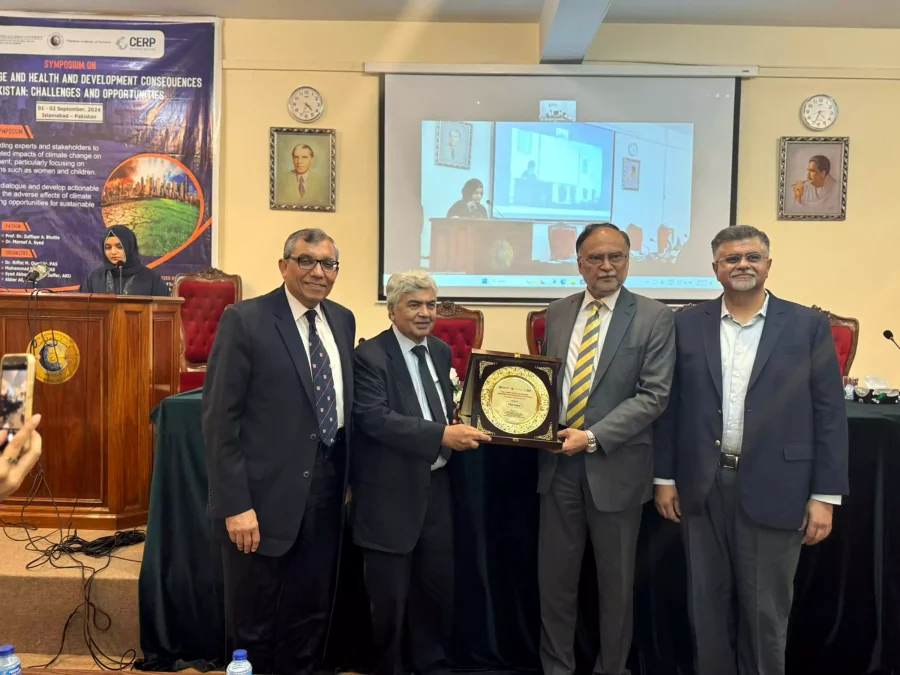The Aga Khan University’s Institute for Global Health and Development (IGHD), in collaboration with the Pakistan Academy of Sciences (PAS) and the Centre for Economic Research in Pakistan (CERP), hosted a pivotal symposium titled “Climate Change and Health & Development Consequences in Pakistan: Challenges and Opportunities.” The symposium convened experts, policymakers, and stakeholders to discuss the various impacts of climate change on Pakistan’s health, agriculture, food security, and economic development.
The event explored indigenous and innovative strategies to mitigate these effects. The Honorable Minister Ahsan Iqbal emphasized the need for a unified approach to tackle climate change, stating that “No single entity—be it a politician, judge, or institution—has the solution to climate change.”
The “Climate Change and Health & Development Consequences in Pakistan” symposium has laid the groundwork for transformative action. By leveraging technology, indigenous knowledge, and a collaborative research and governance framework, Pakistan can address the impacts of climate change and work towards a sustainable future for its vulnerable populations and ongoing development.










